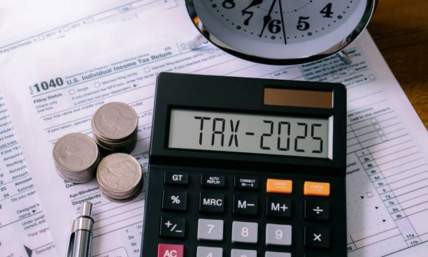Do Paychecks Expire? - The Ultimate Guide
Payroll checks, like any other uncertified bank check, are only valid for a specific period of time after the date that they have been issued. This period of time will vary depending on each individual state’s implementation of the Uniform Commercial Code and so if you have just moved to a new state, this is something to be aware of as the rules will undoubtedly differ. On average, a payroll check will still be able to be used for six months after the date of issuance.
Also read: Can You Deposit Someone Else's Check In Your Account?
What is the Uniform Commercial Code?
The Uniform Commercial Code or UCC are the model regulations for any governing banking, financial and business transactions. This code has been adopted by the majority of U.S. states and has established any legal obligations of banks with regards to governing the validity of any paycheck. Each state will have incorporated the UCC into its own system of financial regulations and therefore, each implementation will differ depending on state law. The vast majority of states have implemented a six-month limit on the validity of a check, however, it is also important to note that the model UCC itself doesn’t place an award limit for when checks must not be used.
Also read: What is Paychex?

Bank Procedures
After the allocated time has passed under state regulation, a bank can choose to dishonor a check. However, the bank is not required or obligated to dishonor it. Some banks will allow for negotiation if the bank can determine that the payor would still want the check to be honored as this removes the possibility of any hassle occurring further down the line.
Also read: How Long Can an Employer Hold Your Check After Termination
Limits
Some companies will directly specify a limit of the check itself by writing ‘void after __ days’ on the face of the check. Banks should always honor the limits set by the payor, however, a check that has been deposited rather than presented for encasement may become accidentally honored as there is currently no automated system to check for these types of limitations. If a check is accidentally honored past the expiration date that has been specified, the payor may seek a reversal which can be detrimental to the account holder when the process is eventually reversed and as such, these limits should always be respected to avoid spending money that may later be reversed.
Also read: What is a Paycheck
How long are business checks valid for?
Businesses will often write checks to suppliers, freelancers, contractors, landlords and other companies and occasionally one of these checks may take a while to be cashed. Although banks do not have to honor any check that is over six months old, they often will still do so.
Also read: 10 Things You’ll Need from Each Employee to Achieve Efficient Payroll Processing
Limit Noted
The majority of large corporations will write the length of time that the check will remain valid for on the face of the check itself. For itself the check may say, ‘valid for 90 days from this date’ or conversely, ‘not valid after 90 days from this date’. If a business check is deposited afterwards and has this notice on it, then the check writer’s bank will usually refuse to process the transaction because many corporations will have extra regulations set up on their accounts to protect themselves due to the large number of transactions that will flow through on a daily basis. If the company's bank denies this payment then it will also be your responsibility to pay any fees that are associated with the returned check and you should also bear this in mind to avoid unwanted liability.

Bank Requirements
According to Article 4-404 of the UCC, a bank is never obliged to pay a check out of a customer’s account when the check is over six months old based on the limit that has been stated on the check itself. Despite the fact that there is no obligation, many banks will still pay the check as they are permitted to do so when required. A bank is always obligated to pay a check that has been certified by the company to be paid outside of the limit date of six month payment window and as such, you should consult with the company in question if you are paying in a check that is outside of it’s expiry date to see if they are still able and willing to pay you what you are owed.
What if there is no limit on the check?
The vast majority of smaller companies do not have these rules established on their accounts. Small businesses will not issue checks with the length of time printed on the face of the check, although some may choose to do so. Therefore, if you are the owner of a small company and you write a check, someone is legally able to try to cash it in up to 18 months from the date of issue. Despite the fact that banks can refuse to process checks that are older than six months after the date of issuance, these dates are rarely checked and as such, your check could potentially be cashed at any given time.
In-person presentation
If a supplier presents a check in person to your company’s bank that is over six months old then the transaction is more likely to be denied as tellers will usually pay far more attention to detail when cashing in a check in order to avoid any fraud. This also reduces the chances that the bank will actually cash in the old check. However, the vast majority of customers or suppliers will deposit an older check as opposed to presenting it in person and so this is something to bear in mind.
Actions to Take
In order to minimize the chances of an old check being carried over into your new accounting period, you can also choose to place a stop payment on any check that is older than six months. This is the best way to protect your interest and your bank will simply return the check unpaid. However, these stop payments are also only valid for a period of six months. If a check has expired but was issued for a large amount, repeated stop payments will definitely be worth the effort of renewing. Any vendor or customer who has failed to cash in the check within a six month period can also write to your company in order to request a replacement check providing that they explain why they have failed to cash in the check within the original specified time period.

Request a copy of a check stub
You should also keep a record of any check stubs after a check has been paid. These stubs are crucial in order to keep a record of a particular transaction, although these are far less common in an age of online payments. However, when a payment has been made or received via paper form or via an online form of check, the stub can be used as verifiable evidence that any funds have been provided and these stubs will also still be available for any funds that have been transferred online. Make sure that you request a copy of your check stub if you face any complications with regards to the date that a check was originally issued as this will ensure that your account is thoroughly protected.















